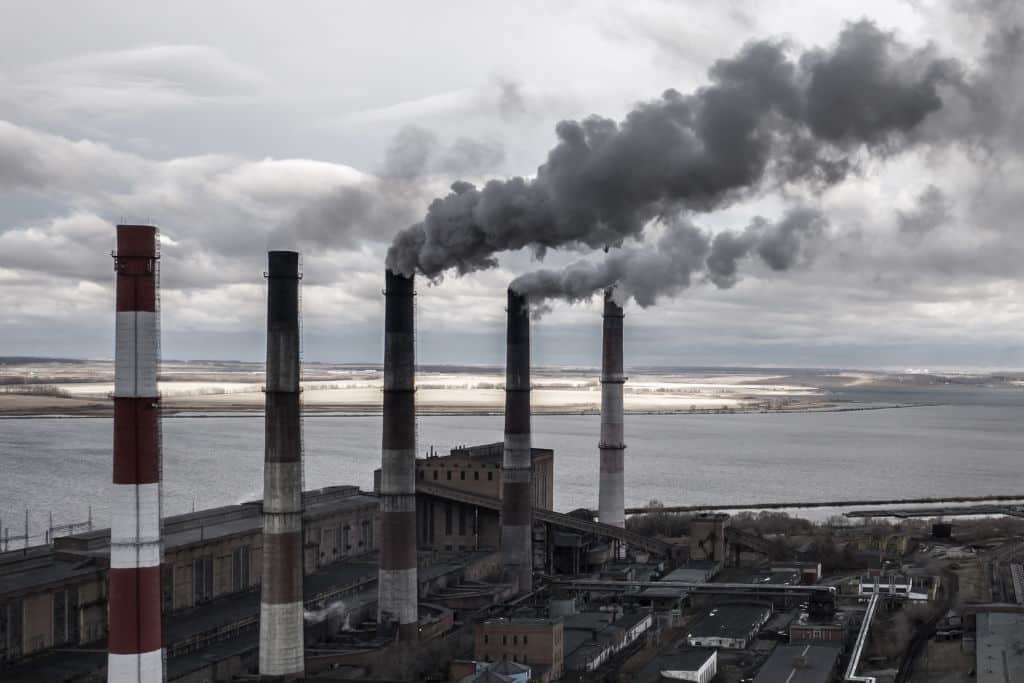
A growing body of scientific evidence now suggests that, due to rapidly increasing greenhouse gas emission levels in the atmosphere, the world is on track to overshoot the Paris Agreement’s 1.5C target within the next three years, pushing the planet beyond a critical threshold faster than previously feared.
—
The dire warning comes from the most up-to-date assessment of the state of global warming, led by a group of international researchers and published in Earth System Science Data earlier this month. The report was signed by over 60 scientists across 17 countries.
The study, published last month, updates key climate indicators from the 2021 report by Working Group 1 of the Intergovernmental Panel on Climate Change (IPCC), the world’s most authoritative scientific body on climate change. Aurélien Ribes, a researcher at the National Center for Meteorological Research and co-author of the study, said the findings “[help] fill a gap caused by the long publication timeline of IPCC reports, as the next one is not expected until the end of the decade.”
The update is a grim reminder of the ambitious goals set in the 2015 Paris Agreement, which aimed to limit global warming to 1.5C or, at the very least, keep it well under 2C.
Amid a historic heatwave smothering Europe and contributing to western Europe’s hottest June on record and record temperatures in the Mediterranean sea, the report notes that “human-induced global warming rates are at their highest historical level.”

One alarming statistic revealed in the study, highlighting just how deeply the world is already feeling the impacts of climate change, is the Earth’s Energy Imbalance (EEI), a key indicator of how fast climate change is progressing. EEI refers to the amount of heat the planet absorbs versus what it emits thus creating an imbalance due to human-driven climate change. Since 1975, the EEI has more than doubled.
In fact, heat has accumulated continuously, warming the land, the cryosphere, the atmosphere and, particularly, the oceans, at increasingly deeper depths, with an especially sharp and unexplainable jump in 2023 and 2024.
Adding to the urgency, the report also notes that the global carbon budget, that is, the amount of carbon dioxide (CO2) that can still be emitted before reaching a certain temperature increase, is being depleted faster than expected. In its 2022 report, the IPCC estimated that humanity could only emit 500 billion more tonnes of CO2 from the start of 2020 onwards for a 50% chance of keeping warming to 1.5C.
As a result, the remaining carbon budget would be exhausted “in a little more than three years if global CO2 emissions remain at 2024 levels.”
Human-induced warming rose at an unprecedented rate in 2024, reaching 0.27C per decade over 2015-2024. This high rate of warming is caused by a combination of greenhouse gas emissions being at an all-time high over the last decade, as well as reductions in strength of aerosol cooling.

While natural causes such as the fact that 2024 was associated with a weather pattern known as El Niño, are partly responsible for this unprecedented statistic, anthropogenic climate change is largely to blame. As noted in the report, last year surpassed 2023’s record high global annual-mean surface temperature change, reaching 1.52C and becoming the first calendar year since pre-industrial times to exceed 1.5C.
According to Valérie Masson-Delmotte, a paleoclimatologist and former co-chair of Working Group 1 of the IPCC, 1.36C of this total was caused by human induced climate change.
‘Critical Decade’
On a positive note, the study emphasizes that even though global greenhouse gas emissions are at a long-term high, there are signs that their rate of increase has slowed and that swift and strict emission decreases could “halve warming rates over the next 20 years.” But the right societal choices need to be made.
The authors reinforce the idea that “this is a critical decade” since global warming intensifies extreme weather events.
This story is funded by readers like you
Our non-profit newsroom provides climate coverage free of charge and advertising. Your one-off or monthly donations play a crucial role in supporting our operations, expanding our reach, and maintaining our editorial independence.
About EO | Mission Statement | Impact & Reach | Write for us








